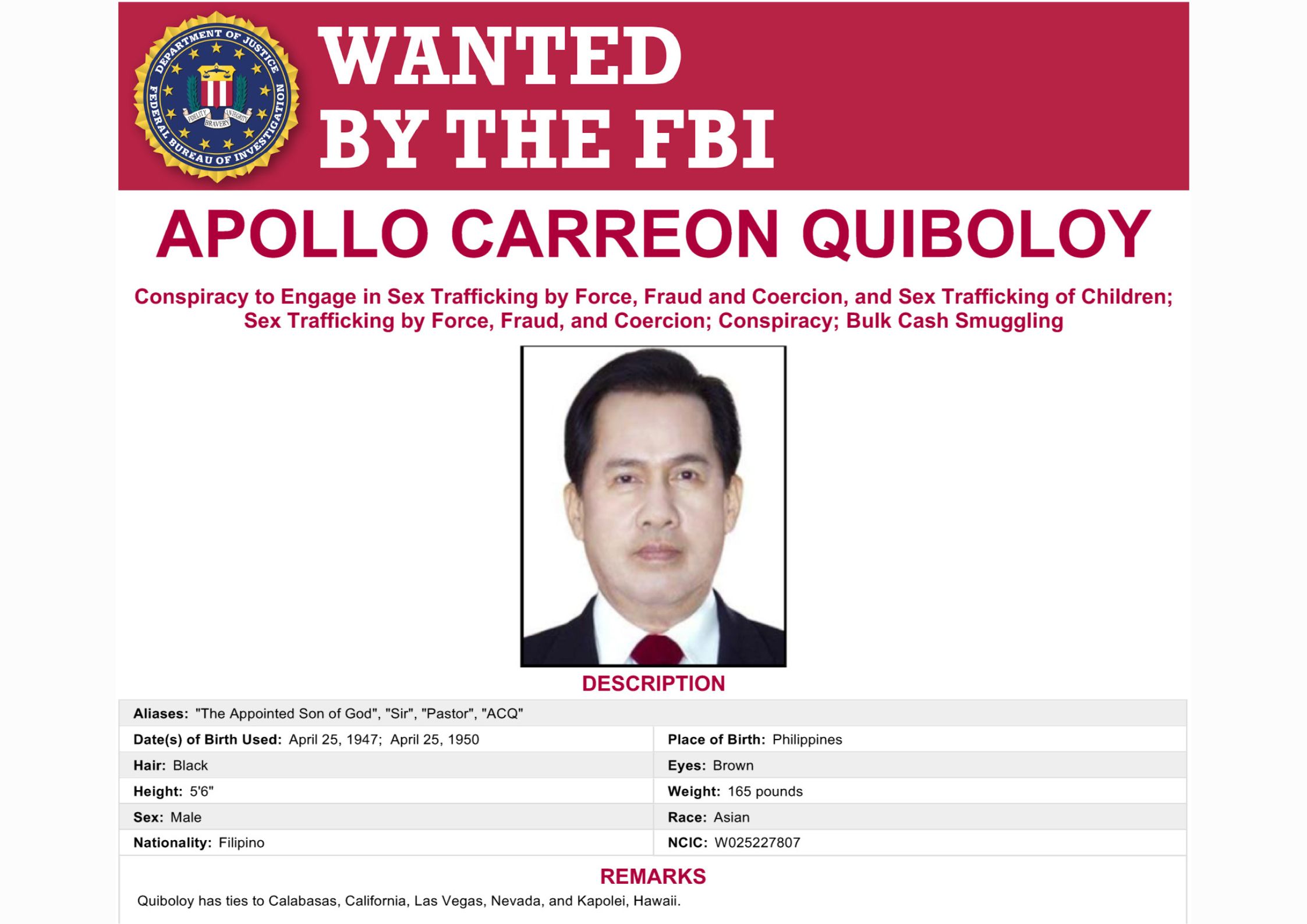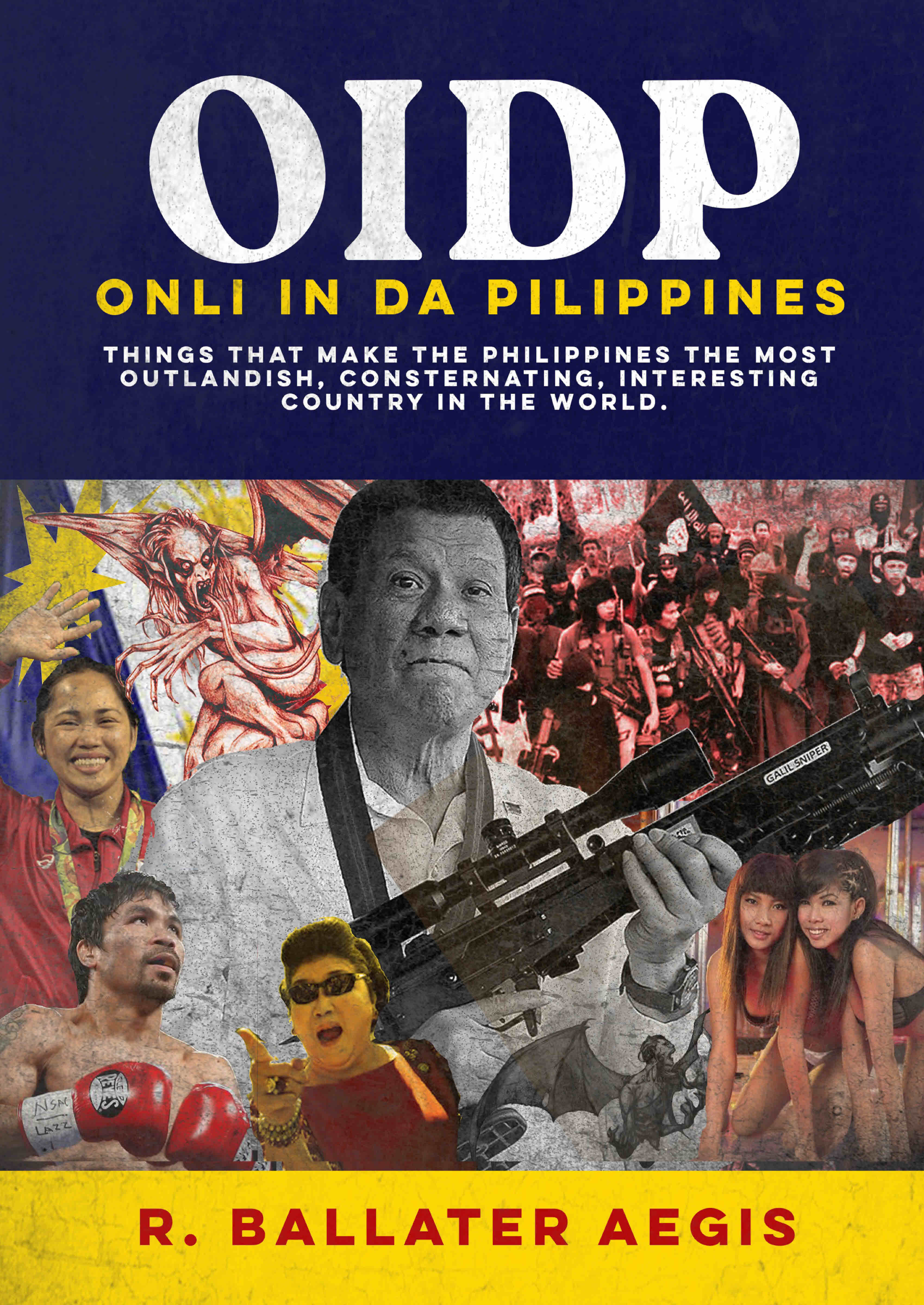Self-Appointed Son of God
Apollo Quiboloy, the founder of the Kingdom of Jesus Christ (KOJC) church based in Davao City and a prominent Filipino televangelist, has been a figure of international controversy since his 2021 indictment in the United States on charges including sex trafficking, fraud, and money laundering. As of August 2025, Quiboloy remains detained in the Philippines facing local criminal cases, but the US has formally requested his extradition under the longstanding PH-US Extradition Treaty. This request, confirmed by Philippine officials, places the Marcos Jr. administration in a delicate position, balancing legal obligations with domestic political sensitivities not unlike those surrounding the delivery of former Philippine President Rodrigo Duterte to the International Criminal Court (ICC) in The Hague, Netherlands.
Quiboloy's close ties to Duterte, who appointed him as Spiritual Adviser, add layers of complexity. Duterte's administration was often at odds with the US over human rights and foreign policy, while current President Ferdinand Marcos Jr. has pivoted back toward stronger US alliances amid tensions with China in the South China Sea. If the Philippines approves and effects Quiboloy's extradition—potentially through a temporary custody process allowing him to face US charges before returning for Philippine trials—the diplomatic repercussions for the United States could be multifaceted. What might the short and long-term implications be, drawing on the broader context of current US-Philippine relations?
Transitory Repercussions: Immediate Gains and Potential Backlash
In the aftermath of an extradition, the US might experience a boost in diplomatic standing globally, at least among its rule-of-law-based allies and proponents of human rights. A successful handover would underscore the effectiveness of bilateral law enforcement cooperation between Washington and Manila, reinforcing the renewed enhancement of military and economic ties after the “Duterte Blip” of 2016 - 2022. Analysts suggest this could lead to warmer relations with the Marcos administration, potentially accelerating joint initiatives on counter-trafficking and regional security. It might also facilitate quicker responses to future extradition requests, signaling mutual trust in judicial processes.
Conversely, short-term challenges could arise in the form of domestic unrest. Quiboloy commands a significant following, particularly in Davao City, where the KOJC wields considerable political clout with an estimated 9,000 active voting members. His extradition would most certainly spark protests from supporters, including Duterte loyalists, who could frame such as US overreach or interference in Philippine sovereignty. This backlash could temporarily strain US public diplomacy efforts, with anti-US sentiment amplified on social media via the DDS (“Diehard Duterte Supporters” aka. “Davao Death Squad”) troll army or through political rhetoric from aligned politicians. Philippine lawmakers have already highlighted Quiboloy's "local influence" as a reason for urgency, warning that delays might embolden his network, but an expedited extradition could inversely provoke short-lived diplomatic tensions if perceived as prioritizing US interests over those of the Philippines.
Additionally, the US Department of Justice's involvement—having indicted Quiboloy and placed him on the FBI's Most Wanted list—positions this as a high-profile win for American anti-trafficking campaigns. Yet, if the process appears rushed or insensitive to ongoing Philippine trials, it might invite criticism from international observers, potentially complicating US relations with other Southeast Asian nations wary of extradition precedents.
Strengthening Alliances or Lingering Resentments?
Over the longer term, Quiboloy's extradition could solidify the US-Philippine strategic partnership, particularly in the Indo-Pacific region. By demonstrating adherence to the extradition treaty, the US would reinforce its image as a reliable ally committed to justice, which could encourage deeper economic and security integrations. This aligns with the US government’s emphasis on countering human rights abuses globally, potentially setting a precedent for handling similar cases involving influential figures in allied nations. In the context of ongoing South China Sea disputes, a cooperative extradition could bolster joint military exercises and intelligence sharing, helping the US maintain its geopolitical foothold in Asia.
Later repercussions might include entrenched resentment among certain Philippine factions. Quiboloy's association with Duterte, whose family remains politically powerful, could fuel narratives of US meddling, especially if his US trial uncovers sensitive details about Philippine elites. DDS efforts in this regard might succeed in eroding public support for US bases or aid programs, leading to policy shifts in future Philippine elections. Sovereignty concerns, as highlighted in discussions around the treaty, could prompt calls for renegotiating extradition terms, indirectly weakening US influence.
If the extradition exacerbates political divisions in the Philippines—potentially destabilizing the Marcos government—it could force the US to navigate a more volatile ally, complicating broader ASEAN diplomacy. Failure to manage fallout could embolden anti-US sentiments regionally, with countries like China exploiting the narrative to portray the US as hegemonic. Conversely, a smooth process might enhance US soft power, promoting democratic values and human rights as shared priorities.
Testing the Waters
The extradition of Apollo Quiboloy, if approved, would likely yield net positive diplomatic outcomes for the US in both the short and long term through enhanced cooperation, though tempered by domestic backlash in the Philippines. It could fortify the alliance but risks fostering resentment that challenges America’s status in the region. Ultimately, the repercussions hinge on how both nations handle the process—transparently and respectfully—to minimize fallout while advancing justice. As US-Philippine relations evolve amid global shifts, this case serves as a litmus test for the durability of their partnership.

